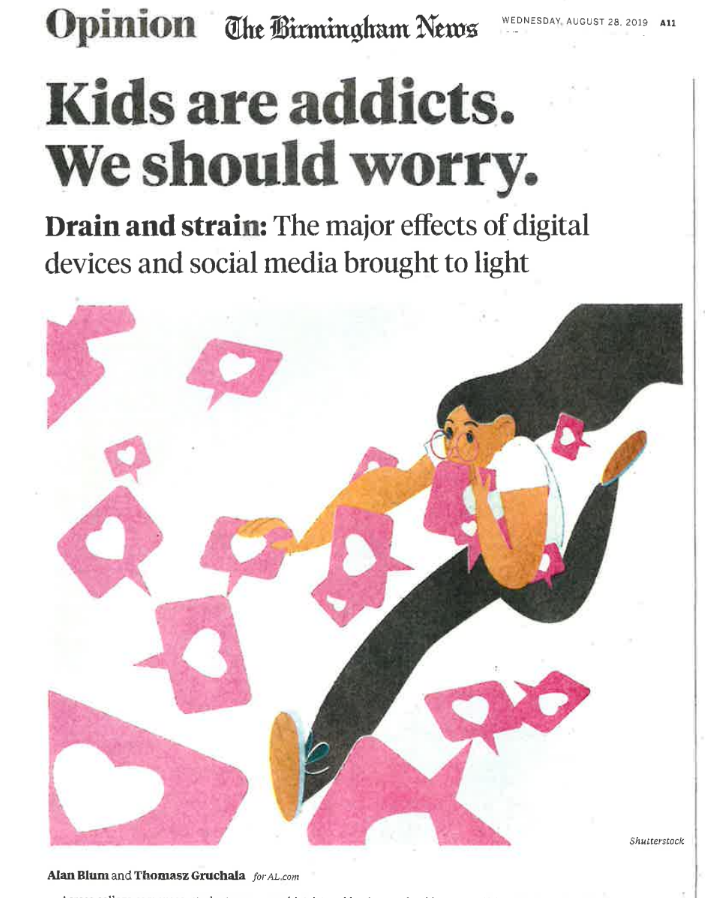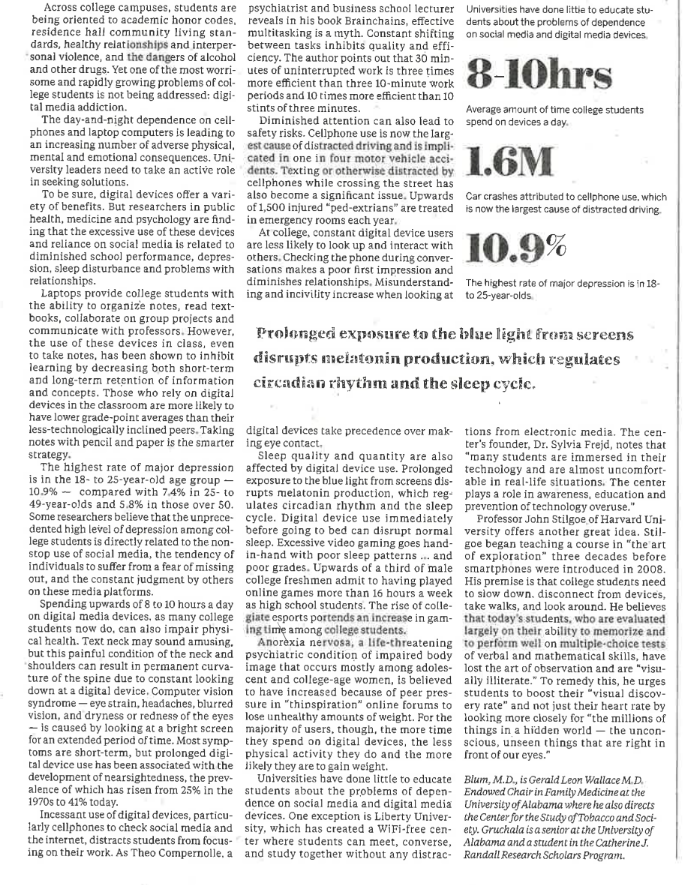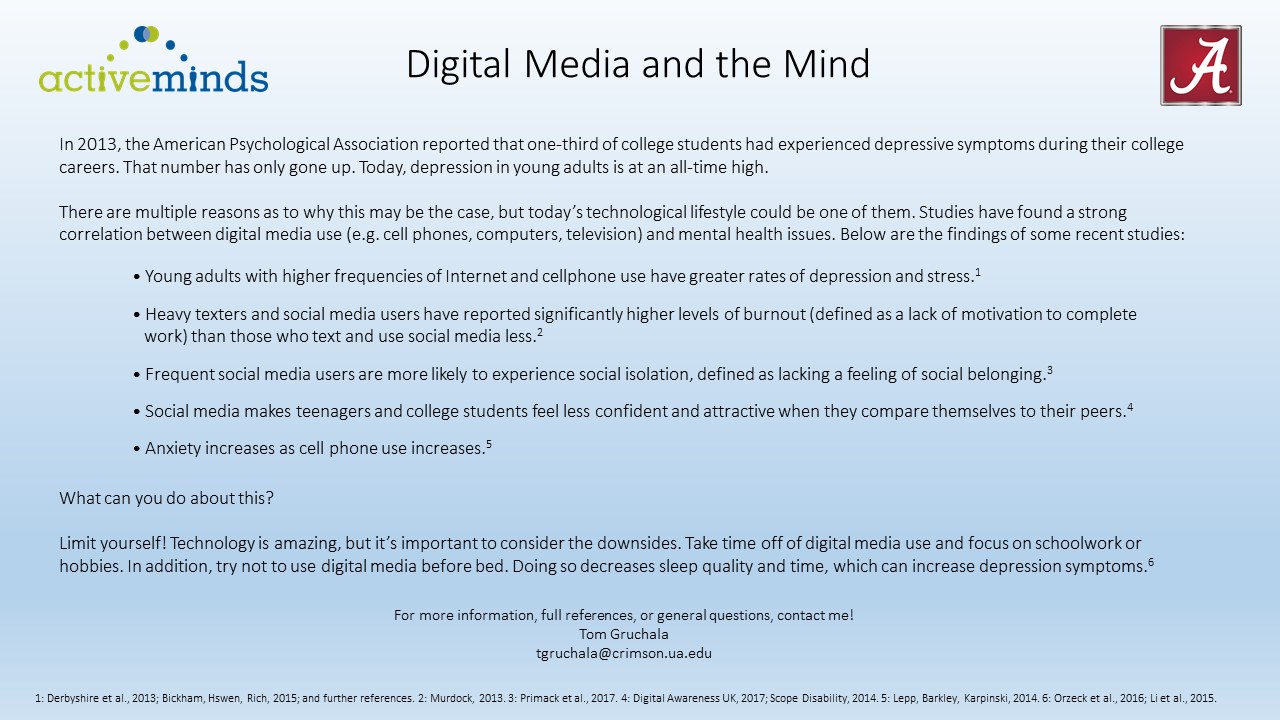Articles and Videos
The Birmingham News
“Our kids are addicts. We should worry.” (2 pages)
Opinion column by Alan Blum, MD and Thomasz Gruchala
The Birmingham News
August 28, 2019.
A online version was published on August 19, 2019 on al.com.


The Tuscaloosa News
“Put down that phone, at least for a little while”
Opinion column by Larry Clayton
The Tuscaloosa News
January 28, 2019
Click on the image to open the article in a new tab.
WVUA 23 “Health Matters”
For his popular “Health Matters” news feature on Tuscaloosa TV station WVUA 23, station manager Mike Royer interviewed Alan Blum, MD on February 28, 2018 about his work on digital media addiction.
In this day and age, technology is constantly evolving, but new studies show it could be physically harming us. Dr. Rick Streiffer sits down with Dr. Alan Blum, a family physician at the University Medical Center, about the addiction we’re seeing to phones, devices and computer screens.
Streiffer notes that the creation of the smart phone and computers has been a remarkable addition to our society with all the benefits it has brought. But as he looks around, he realizes people are addicted, and they are ignoring other people because of it.
There is recent increasing evidence showing that harm is coming from this phenomenon. Dr. Alan Blum said he has seen the medical effects of “text neck,” a spinal curvature that lasts the more you text.
Blum said this is something you do simply by walking down the street and staring at your screen. He believes it’s going to have permanent effects that leads into something called computer vision syndrome. This potential eye strain, headaches and neck strain is due to staring into a screen all day.
“We’re clearly not going to be getting rid of our cellphones,” Blum said. “We’ve become dependent on them and they bring benefit, but we need to be aware of the downside, we need to think about how to balance. Balance is perhaps the key in this particular area.”
By WVUA 23 Web Writer Annie Milbourn
The original article can be found on the WVUA website.
Active Minds
In 2018, the University of Alabama’s chapter of Active Minds, a mental health awareness organization, partnered with Tom Gruchala to share handouts about digital media addiction to students.

Webpage built as part of a research project between the CSTS and the RRSP.
Contact
Alan Blum, M.D., Director
205-348-2886
ablum@ua.edu
© Copyright - The Center for the Study of Tobacco and Society


